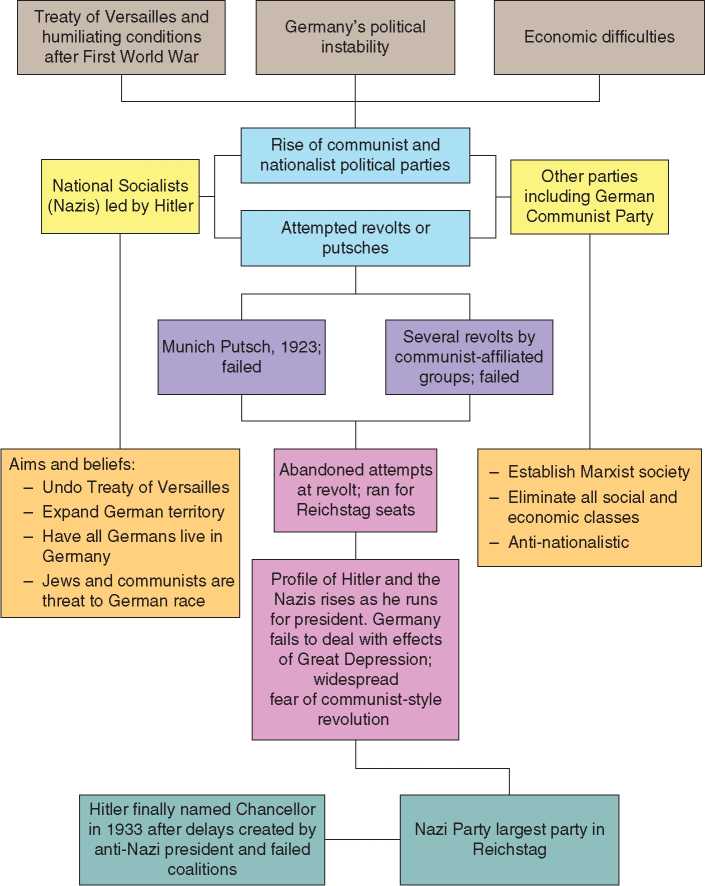• One of the extraordinary aspects of Hitler's success in gaining the Chancellorship was how ill-defined his stated objectives had been:
Nazi propaganda (see page 89) had been directed towards attacking political opponents, rather than developing a clearly defined Nazi programme.
• Hitler calculated that for the electorate it was more important that it knew what the Nazis were against than what they were for. Exploiting people's fears of communists and Jews brought more votes than presenting a detailed set of measured Nazi policies.
• There was no contemporary German politician capable of matching Hitler's determination and political ability.
• Hitler was the beneficiary of what would now be called a protest vote: Richard J. Evans, a celebrated historian of the Nazi movement, uses the term 'protest vote' as a way of explaining why the German electorate were attracted by Hitler and the Nazis.
According to Source F what were the key aspects of the Nazi protest vote?
Excerpt from The Coming of the Third Reich by Richard J. Evans, published by Allen Lane, uK, 2003, p. 448.
[T]he Nazi vote was above all a protest vote; and, after 1928, Hitler and the Party leadership recognized this implicitly by removing most of their specific policies, in so far as they had any, from the limelight, and concentrating on a vague, emotional appeal that emphasized little more than the Party's youth and dynamism, its determination to destroy the Weimar Republic, the Communist Party and the Social Democrats, and its belief that only through the unity of all social classes could Germany be reborn.
Another remarkable aspect of Hitler's success was that he somehow looked upon himself as above the politics in which he was engaged. He appeared to be waiting upon events as if he knew that it was his destiny to take power. One of his Nazi associates, Ernst Hanfstaengl, commenting on Hitler's attitude, observed:
Source g
According to Source G, why was Hitler so confident of eventually gaining power?
Excerpt from Hitler: The Missing Years by Ernst Hanfstaengl, published by Arcade Publishing, uSA, 1994 edition (first published 1957),
He did not concern himself with the day-to-day kaleidoscope of the political scene. He was not looking for alliances or coalitions or temporary tactical advantage. He wanted power, supreme and complete, and was convinced that if he talked often enough and aroused the masses sufficiently, he must in due course be swept into office.





 World History
World History









